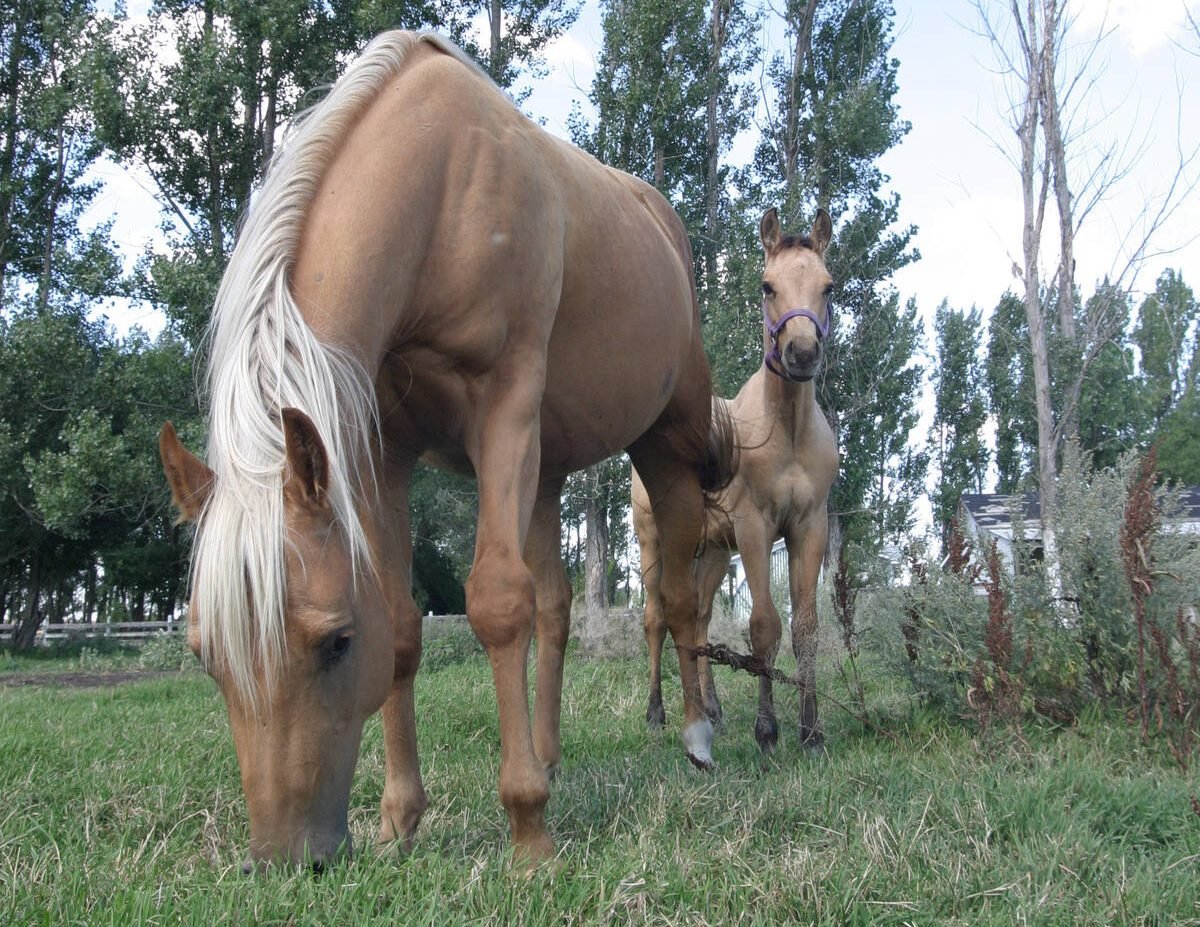Poor service the norm
When shipping grain, many farmers express disappointment with the current rail service.
About 1998, the railways awarded the shipping of other products priority over the movement of grain. An agency, working on behalf of farmers, estimated how much farmers lost due to the lack of service.
A court case decided farmers should be compensated for their financial loss. In losing the case, CP Rail ended up paying a hefty fine on top of their share of the damages. CN Rail grudgingly paid its share.
Read Also

Growth plates are instrumental in shaping a horse’s life
Young horse training plans and workloads must match their skeletal development. Failing to plan around growth plates can create lifelong physical problems.
After this happened, with the Canadian Wheat Board the watchdog, grain movement went relatively smoothly. Since the CWB was dissolved, farmers and grain shippers report mega problems obtaining rail cars.
The federal minister of agriculture endorsed regulations to get the railways moving grain more efficiently.
Why, even with these regulations, is poor service the norm for Saskatchewan farmers? Were the regulations designed by the railways for their financial benefit? Was the minister afraid the railways would have him fired if he did not approve the regulations?
Lorne Jackson,
Moose Jaw, Sask.
Trip of a lifetime
Our “green” trip-of-a-lifetime from home on Vancouver Island to Europe means keeping our carbon emissions low — which means burning less fossil fuels. So Margaret and I bought passenger train tickets to the east coast of North America, then cargo freighter tickets to the west coast of Europe — avoiding airplanes, which churn out huge amounts of greenhouse gases.
But our plan to go by VIA Rail was derailed by crashed and burning oil tanker cars in northern Ontario — an excessive response of the fossil fuel industry, I thought, just to annoy two carbon busters.
Undaunted, we got a refund from Via and bus tickets to Seattle — the greenest way to travel short of bicycling. From there we boarded an Amtrak train to Buffalo. And since all that inconvenience was cheaper than Via, maybe we had the last laugh.
Train travel provides space and time for conversing with fellow travellers. On train holidays throughout the U.S., we have discussed Buddhism with Vietnam war vets, capitalism with Amish, science with hillbillies, and — most dramatically — climate change with Texans. Oh my!
Not to worry, Margaret kicks me in the shins if I get too boisterous. And I did get a tad agitated when an oil driller from the fracking area of North Dakota described his job with undiluted enthusiasm; but I listened quietly — no screaming or kicking — and heard him say that humans had sure made a mess of the Earth to extract its resources. So he kind of glimpsed the problem — well, maybe he glimpsed my Green Party button.
As for scenery, trains are closer to the ground than planes. It’s March 16 (as I write), and yet we saw flooding rivers in the Rockies, dry prairie grasslands in Montana, and a temperature of 22 C in Chicago — unusually early events, and a heads-up on the climate-change crisis.
Train travel provides other unpleasant lessons for a climate change activist. Constant delays occur while we sit on sidings waiting for on-rushing oil tanker cars. Rail freight companies in the U.S. and Canada own the tracks, so passenger trains routinely get sidetracked — literally.
Oil tankers are rushing to both coasts, replacing oil pipelines that activists have stalled — or so we like to think — and too often they burn like giant black turds. We must be accountable for our own wastes; if we demand fossil fuels, the drilling and fracking and mining will continue. We need to lead our fumbling politicians.
For example, B.C.’s premier Clark fantasizes, for political reasons, that liquefied natural gas LNG terminals will contribute to a sustainable future. They will not. Fracked gas looks clean, but it’s as dirty as those blackened oil tankers on a track hurtling towards climatic disaster.
You and I can be leaders by minimizing our use of fossil fuels in all aspects of our lives. So when we travel, Margaret and I use fuel-efficient trains — crossing rivers in Minnesota devastated by bitumen from Alberta.
Peter Nix,
North Cowichan, B.C.
Not time for speculation
The article “Canada won’t tell railways where to ship grain for now” (WP online March 25) should be concerning for grain producers.
The Minister of Transport makes speculative comments regarding the Maximum Revenue Entitlement (MRE), a policy that is currently under examination by the Canada Transportation Act Review process led by an appointed chair and expert advisory panel.
The MRE is a contentious policy: vilified by the railways, but supported by the vast majority of grain interests and western provincial governments. At its core, the MRE is a policy response to the lack of market forces in the Western Canadian grain transportation system.
Making casual remarks regarding a policy that has the potential to fundamentally alter the structure of grain pricing that will affect every Canadian producer, as they will absorb the majority of the cost associated with any change, is inappropriate at this time.
The policy is undergoing study and the review will make recommendations by the end of 2015. Additionally, the assertion that the grain backlog is “coming back into equilibrium” does not capture the complete picture.
While carryout has returned to normal levels, overall Western Canadian grain shipping performance, as reported by the Ag Transport Coalition, is still showing significant unfulfilled net demand.
Although not citing a specific position on the policy, it is inappropriate for the minister to publicly foreshadow potential outcomes, based on personal economic viewpoint, without the benefit of analysis, facts and the strategic consideration of the review.
Brett Halstead, President,
Canadian Canola Growers Assoc.
Winnipeg, Man.
Gary Stanford, President,
Grain Growers of Canada,
Ottawa, Ont.














